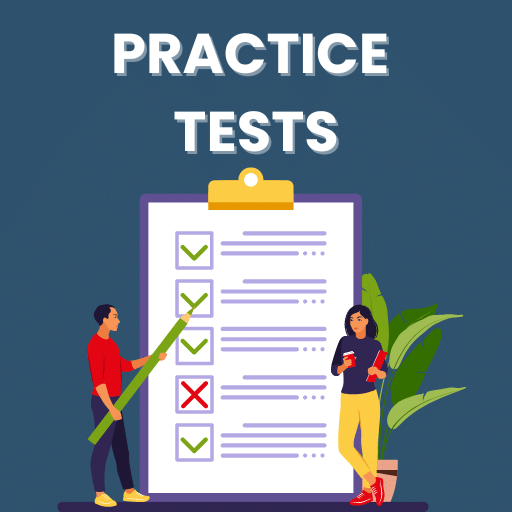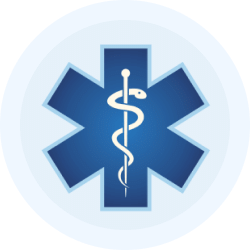
|
INFINITY COURSE
Practice Tests for BMATElite Coaching Classes · Last updated on Oct 21, 2025 |
Practice Tests for BMAT Study Material
|
Trending Courses for BMAT
Practice Tests for BMAT Exam Pattern 2025-2026
The Biomedical Admissions Test (BMAT) is an important examination for students aspiring to study medicine, biomedical sciences, or dentistry at various universities. To prepare effectively for the BMAT, it is crucial to understand the exam pattern and practice with mock tests. Here are the key points to know about the BMAT exam pattern and the significance of practice tests.
BMAT Exam Pattern:
The BMAT is a 2-hour, pen-and-paper test that consists of three sections: Section 1, Section 2, and Section 3. Each section assesses different skills and abilities of the candidates. Here is an overview of the BMAT exam pattern:
Section 1: Aptitude and Skills
- Duration: 60 minutes
- Questions: 35 multiple-choice questions
- Content: Tests problem-solving, critical thinking, and data analysis skills
Section 2: Scientific Knowledge and Applications
- Duration: 30 minutes
- Questions: 27 multiple-choice questions
- Content: Assesses scientific knowledge and its application in biology, physics, chemistry, and mathematics
Section 3: Writing Task
- Duration: 30 minutes
- Task: Write a short essay from a choice of three questions
- Content: Evaluates written communication, organization, and ability to construct a logical argument
The Significance of Practice Tests:
Practicing with mock tests is essential for several reasons:
1. Familiarity with Exam Format: Taking practice tests helps in understanding the structure and format of the BMAT. It familiarizes candidates with the different sections, question types, and time constraints.
2. Time Management Skills: Mock tests enable students to develop effective time management strategies. By practicing under timed conditions, candidates can learn to allocate their time wisely across the sections.
3. Identifying Strengths and Weaknesses: Regularly practicing with mock tests allows students to identify their strong and weak areas. By analyzing their performance, candidates can focus on improving their weaker sections and enhance their overall score.
4. Building Confidence: Consistent practice with mock tests boosts confidence levels. It helps candidates become more comfortable with the exam pattern, reduces anxiety, and improves performance during the actual BMAT.
5. Improving Test-Taking Skills: Practice tests provide an opportunity to refine test-taking skills such as reading comprehension, critical thinking, and problem-solving. With each practice test, candidates can learn valuable techniques to approach different question types effectively.
In conclusion, practicing with mock tests plays a crucial role in preparing for the BMAT. By understanding the exam pattern and regularly practicing with mock tests, candidates can improve their performance and increase their chances of success in the actual exam.
Practice Tests for BMAT Syllabus 2025-2026 PDF Download
Syllabus:
1. Section 1: Aptitude and Skills
- Critical Thinking: Understanding and evaluating arguments, making logical deductions, and drawing conclusions.
- Problem Solving: Applying mathematical and scientific principles to solve complex problems.
- Data Analysis: Interpreting and analyzing data presented in various formats, such as tables, graphs, and charts.
- Understanding Arguments: Identifying assumptions, premises, and conclusions in arguments.
2. Section 2: Scientific Knowledge and Applications
- Biology: Understanding biological concepts, such as cell structure, genetics, evolution, and human physiology.
- Chemistry: Knowledge of key concepts in chemistry, including atomic structure, chemical reactions, organic chemistry, and chemical equations.
- Physics: Understanding of basic physics principles, such as mechanics, thermodynamics, waves, and electricity.
3. Section 3: Writing Task
- Essay Writing: Ability to express ideas clearly and coherently in an essay format.
- Analytical Skills: Evaluating arguments and providing evidence to support or refute a given statement.
- Communication Skills: Presenting arguments and ideas in a structured and persuasive manner.
BMAT Practice Test Structure:
1. Section 1: Aptitude and Skills
- Practice Test 1: Critical Thinking and Problem Solving
- Practice Test 2: Data Analysis and Understanding Arguments
- Practice Test 3: Mixed Questions from all areas
2. Section 2: Scientific Knowledge and Applications
- Practice Test 1: Biology
- Practice Test 2: Chemistry
- Practice Test 3: Physics
- Practice Test 4: Mixed Questions from all sciences
3. Section 3: Writing Task
- Practice Test 1: Essay Writing
- Practice Test 2: Analytical Skills
- Practice Test 3: Communication Skills
Tips for BMAT Practice Tests:
- Familiarize yourself with the format and timing of the actual BMAT exam.
- Practice under timed conditions to improve your speed and efficiency.
- Review the syllabus and focus on areas where you need more practice.
- Analyze your performance after each practice test to identify strengths and weaknesses.
- Seek feedback from teachers or tutors to improve your essay writing and analytical skills.
- Use online resources and study guides to enhance your understanding of key concepts.
- Revise and practice regularly to build confidence and improve your overall performance.
By following this comprehensive syllabus and practicing the provided BMAT practice tests, you will be well-prepared for the actual exam and increase your chances of achieving a high score. Good luck!
This course is helpful for the following exams: BMAT
How to Prepare Practice Tests for BMAT?
Why Practice Tests are Important
1. Assessing your knowledge and skills: Practice tests allow you to gauge your understanding of the different sections of the BMAT, including the scientific knowledge and problem-solving abilities required. By taking these tests, you can identify your strengths and weaknesses and focus on areas that require improvement.
2. Familiarizing yourself with the exam format: The BMAT consists of three sections - Aptitude and Skills, Scientific Knowledge and Applications, and Writing Task. By regularly practicing with sample tests, you become familiar with the structure and timing of each section, helping you manage your time effectively during the actual exam.
3. Building test-taking strategies: Practice tests provide an opportunity to develop effective test-taking strategies, such as time management, question analysis, and prioritization. By practicing with a variety of questions, you can learn how to approach different question types and optimize your performance on the actual exam.
How to Prepare Practice Tests for BMAT
1. Understand the exam syllabus: Familiarize yourself with the BMAT syllabus and the specific topics covered in each section. This will help you identify the areas where you need to focus your preparation.
2. Set a study schedule: Create a study schedule that allows you to allocate dedicated time for practicing BMAT tests. Consistency is key, so aim to practice regularly to build your skills and knowledge.
3. Access a variety of practice tests: EduRev offers a comprehensive course that provides access to a wide range of practice tests for BMAT. These tests cover all sections of the exam and are designed to simulate the actual exam experience.
4. Analyze your performance: After completing each practice test, analyze your performance by reviewing your answers and identifying areas where you made mistakes or struggled. This will help you understand your weaknesses and focus your future preparation accordingly.
5. Seek feedback: If possible, seek feedback from qualified instructors or mentors who can provide insights and guidance based on your performance in the practice tests. This feedback can help you identify areas for improvement and refine your test-taking strategies.
6. Review and revise: Use the feedback and analysis from your practice tests to revise and strengthen your knowledge and skills. Focus on improving your weak areas and reinforcing your understanding of key concepts.
7. Time yourself: When practicing practice tests, make sure to time yourself according to the actual exam duration. This will help you build your speed and ensure that you can complete all sections within the allotted time.
By following these steps and regularly practicing with practice tests from EduRev's BMAT course, you can enhance your preparation and increase your chances of performing well on the actual exam. Remember to stay focused, stay motivated, and make the most of the resources available to you. Good luck!
Importance of Practice Tests for BMAT
Importance of Practice Tests for BMAT Course for BMAT
When preparing for the BMAT (BioMedical Admissions Test), practice tests play a crucial role in ensuring success. As a part of the comprehensive BMAT course offered by EduRev, practice tests are an essential component that helps students gauge their knowledge and prepare effectively.
Why are practice tests important?
Practice tests serve as a valuable tool for students to assess their understanding of the BMAT syllabus and identify areas that require further improvement. Here are a few key reasons why practice tests are crucial:
- 1. Familiarity with the exam format: BMAT practice tests allow students to become familiar with the structure, timing, and style of the actual exam. This helps reduce anxiety and builds confidence, ensuring students are well-prepared.
- 2. Time management: The BMAT is a time-pressured exam, and practicing with timed tests helps students develop effective time management strategies. Regular practice enables them to allocate time efficiently to different sections, improving their overall performance.
- 3. Identifying strengths and weaknesses: By attempting practice tests, students can identify their areas of strength and weakness. This enables them to focus on improving weaker areas and consolidating their strengths, leading to better performance on the actual exam.
- 4. Building exam-specific skills: The BMAT requires specific skills such as critical thinking, data analysis, and problem-solving. Regular practice tests provide opportunities for students to hone these skills, ensuring they are well-equipped to tackle the exam effectively.
- 5. Monitoring progress: Practice tests allow students to track their progress over time. By analyzing their performance in each test, students can assess their growth, identify areas of improvement, and adjust their study plan accordingly.
Overall, practice tests are an invaluable resource for students preparing for the BMAT. Through EduRev's BMAT course, students gain access to a wide range of practice tests, enabling them to refine their knowledge, skills, and exam readiness.
So, if you are aspiring to excel in the BMAT, make sure to include practice tests as an integral part of your preparation. With diligent practice and EduRev's comprehensive course, you can maximize your chances of achieving a great score on the BMAT.
Practice Tests for BMAT FAQs
| 1. What is the BMAT exam? |  |
| 2. How is the BMAT exam structured? |  |
| 3. What topics are covered in the BMAT exam? |  |
| 4. How long is the BMAT exam? |  |
| 5. How is the BMAT exam scored? |  |
Best Coaching for Practice Tests for BMAT
Tags related with Practice Tests for BMAT

|
View your Course Analysis |

|

|
Create your own Test |

|






























